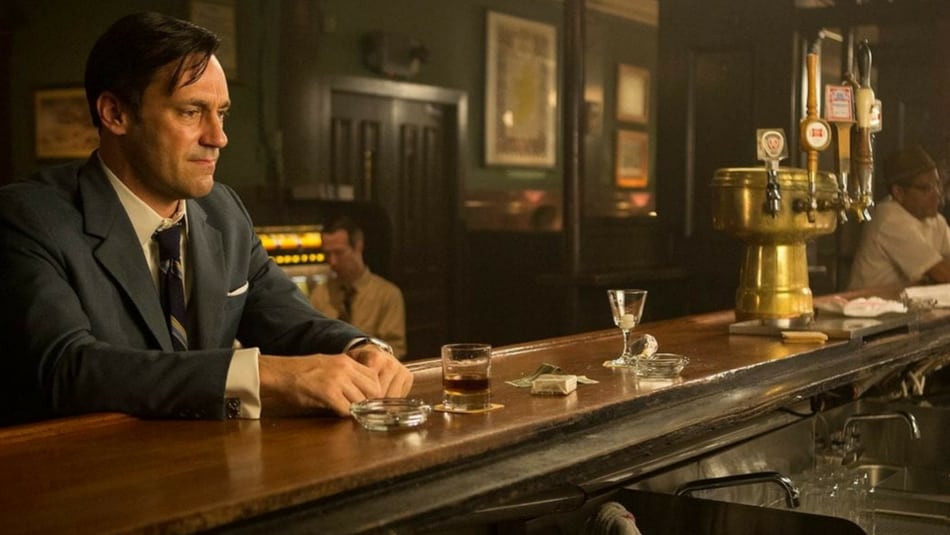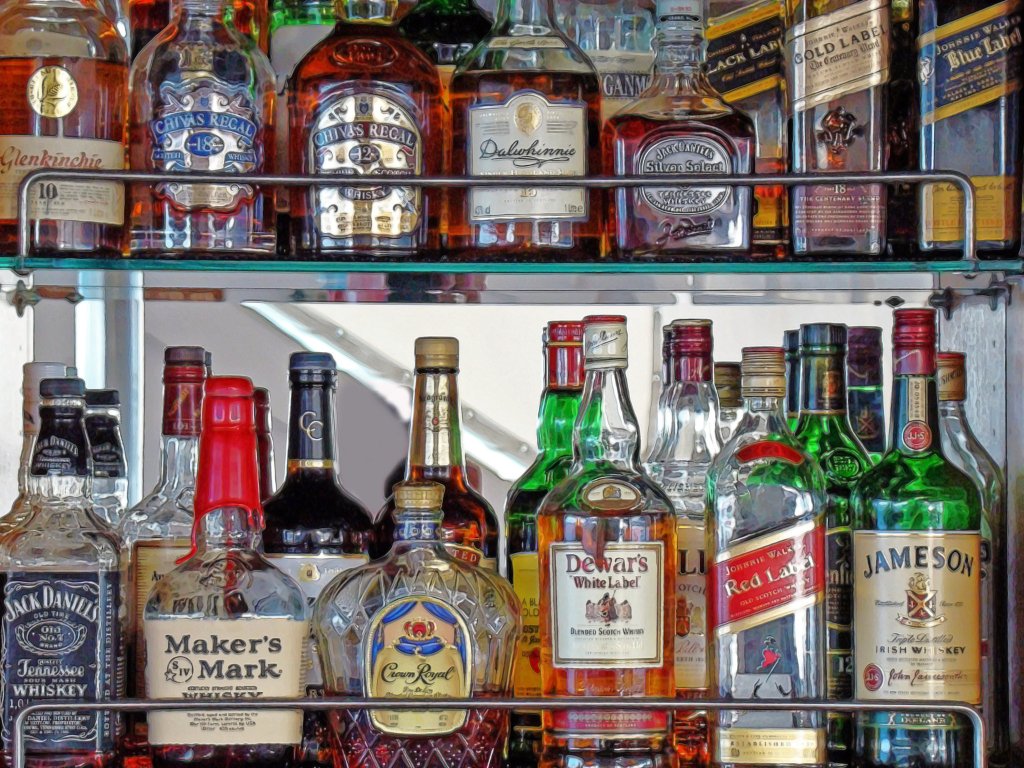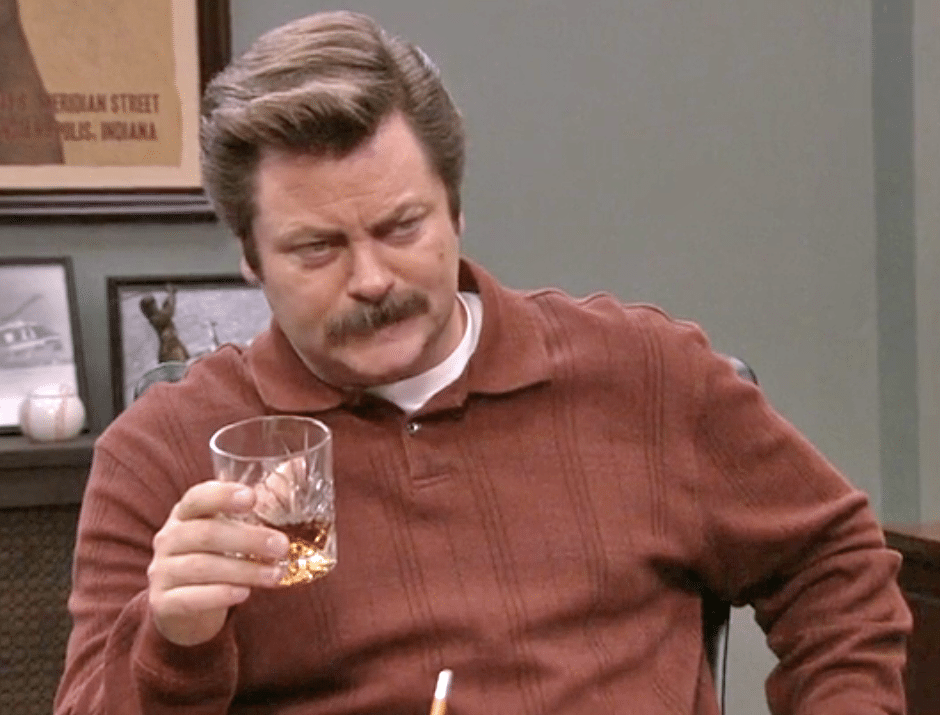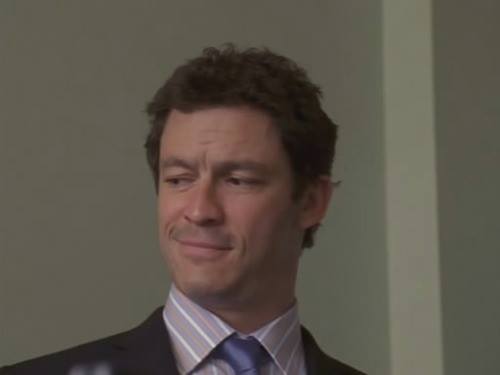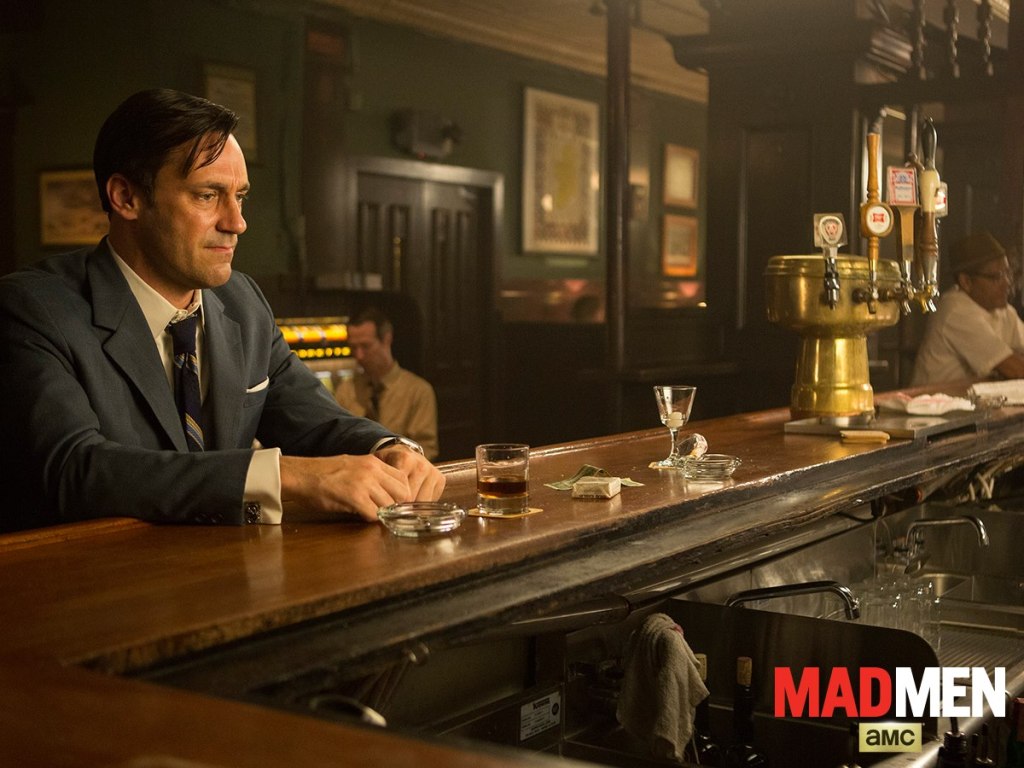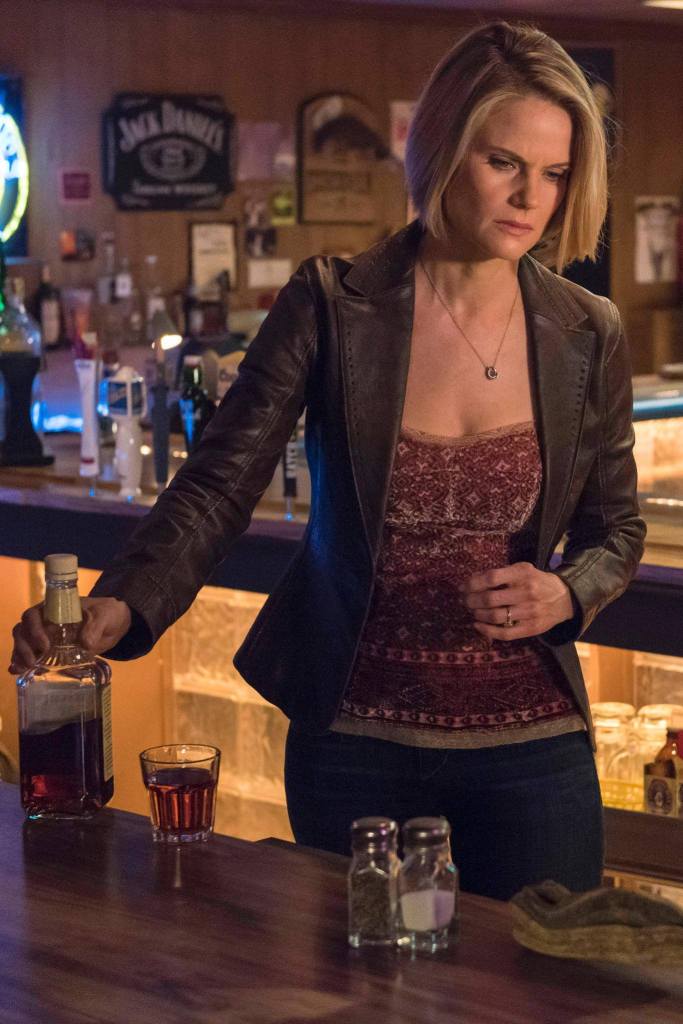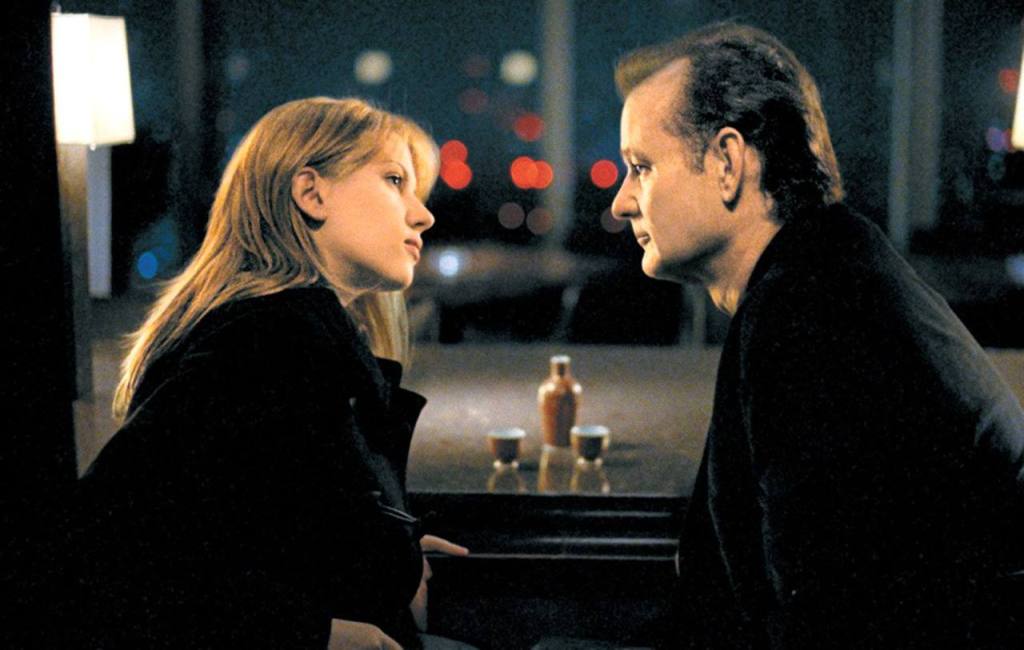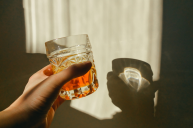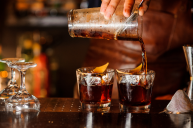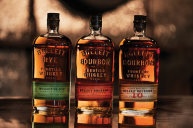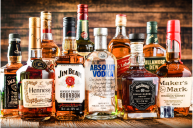Beer may be proof that God loves us, but whiskey, or whisky, is the foundation of life itself. The word whiskey comes from the Gaelic term uisge beatha, which translates as "water of life" and as any whiskey drinker will tell you, a glass of whiskey is indeed a critical part of life and a thing to savor, a moment of calm and goodness in a crazy world.
At it's most basic, any whiskey is the result of distilling fermented grain mash. The geographic heart of the whiskey determines where it falls on the style spectrum; the actual location of distilling is only important for a few styles. Still, walking into a bar and seeing shelf after shelf of bottles with brown liquor might be overwhelming, so we've put together a guide on the different whiskey styles.
And if you need some more guidance on choosing from the different whiskey styles, we've paired each style of whiskey with a fictional character that embodies the spirit of that style. Find your favorite character and try some of their favorite drink!
Scotch Whisky
Ron Swanson, Parks and Rec
"Prepare to experience true freedom and bliss."
Scotch whiskey is peat smoke, thick wool sweaters, and cool mist in the air. It's the outdoors in a drink, consumed by manly men who have just come in from a day of fighting hordes of Sassenach (the English). Ron Swanson is the epitome of the ideal Scotch drinker. Ron loves the outdoors, meat ("You've accidentally given me the food my food eats."), strong women, and Lagavulin scotch.
Distilling in Scotland was first noted in written records in 1494. The records were tax records, which Ron would have hated ("There is only one bad word: taxes"). The basic requirements for a whiskey to be called Scotch are that it must be made of water and malted barley, can only be fermented with yeast, and must be made in Scotland and aged in oak casks for no less than three years in Scotland.
Scotch can't be flavored (you won't find a honey version of any Scotch, for example) and it must be distilled to no higher than 94.8 percent alcohol by volume (ABV) and then it must be bottled with at least 40 percent ABV.
Scotch is not generally a liquor used in cocktails, so Scotch drinkers tend to be, like Ron, people who like things straightforward.
Irish Whiskey
Detective Jimmy McNulty, The Wire
McNulty: "Can I get a Jameson?"
Bartender: "Bushmills okay?"
McNulty: "That's Protestant whiskey."
The process for making Irish whiskey isn't all that different from the process for making Scotch. Irish whiskey is made from both malted and unmalted barley, with barley that's been dried by kiln instead of over smoked peat. Irish whiskey is also usually triple distilled, though that's not a requirement.
Irish whiskey is proud of its roots and history and will fight anyone who disagrees, even if they're from another part of Ireland (maybe especially if they're from another part of Ireland).
Jimmy McNulty is the archetypal TV cop: Smart and very good at his job, but has a problem with authority and often goes outside the chain of command. He's also proud, which fits into his choice of whiskey. His whiskey fits into his worldview and there's no reason to change.
Maybe the only time you drink Irish whiskey is on St. Patrick's Day to show off your pride in Irish heritage, but it's worth expanding your worldview and drinking Irish whiskey other times of the year, too.
Canadian Whisky
Don Draper, Mad Men
"Could you keep it down? I'm trying to drink."
Don Draper's drink of choice outside the office was an Old-Fashioned, a solid classic whiskey cocktail. In the office, though, a bottle of Canadian Club was standard.
Canadian whisky was popular in the U.S. during the 50s and 60s for a couple of reasons. One is that blended whisky, which is a hallmark of Canadian whisky, was the norm during this time. American distilleries still hadn't truly recovered from Prohibition; though Kentucky distilleries were making bourbon, it wasn't the mainstream drink it is today.
Another reason is that consumers were drawn to lighter whiskeys, which is also a hallmark of blended Canadian whisky, which generally uses a greater percentage of rye in their blends. In fact, marketing from the era promoted the lightness. Ads for Canadian Club noted that their whiskey was "Smooth as the wind. Mellow as sunshine" and "The whiskey that's bold enough to be lighter than them all."
If you're looking for a classic, smooth standard, Canadian whisky might be the thing for you.
Bourbon
Ava Crowder, Justified
Winona Hawkins:
How do you take your coffee?Ava Crowder:
With a little bourbon.
For a show that is not technically about the beverage, Justified is to bourbon what the movie Sideways was to wine. The show is set in Kentucky, the home of bourbon, so it's natural that the characters drink bourbon. It's not a surprise to see the men of Justified drinking bourbon (and there are whole dissertations to be had on why certain characters drink certain brands), but it's a little unusual to see a female character on TV without a plot arc of alcoholism drinking like the men do.
There's some historical question about where whiskey distilled from corn mash was first produced in the United States, but we know that Kentucky perfected and codified it. Bourbon has to be at least 51 percent corn, distilled at 160 proof or less. It goes into a previously unused, charred oak barrel at 125 proof or less. There's no aging requirement (though if it's aged less than four years, the label has to say that).
To be called bourbon, it must be made in the U.S. though it does not have to be made in Kentucky. And with the growing popularity, good bourbon is being made all over the country now. Bourbon is officially a "thing" and there are no end of opinions on what makes a good bourbon and who is the ideal bourbon drinker.
Ava, though, doesn't drink bourbon because it's the latest "it" drink. Sure, she'd be happy to have the expensive stuff, but she doesn't expect it. There's no point in pining after a bottle of Pappy Van Winkle. She'll serve customers at the bar with the high-end stuff, but Wild Turkey with breakfast is fine for her because it tastes just fine, thank you very much.
In some ways, bourbon has become a status symbol. If you can afford to drink the small batch, craft, or high end bourbon, you might think of yourself as having made it. But bourbon drinkers that drink what they like, regardless of status or cost, are strong people that know their own mind.
Moonshine
Mags Bennett, Justified
"You pick the devil you run with."
Yes, it is the second mention for Justified. Sure, it's Kentucky so you expect the characters to be drinking bourbon, but Mags Bennett's moonshine in Season 2 is critical to the story arc.
Made from corn meal, yeast, water, and malt or sugar, traditional moonshine is homemade and unaged. We think of moonshine as being the epitome of illegal drinks, but moonshine was made by Scottish and Irish immigrants living in the Southeastern part of the United States long before Prohibition and long before it was "illegal."
In 1791, Alexander Hamilton (yes, that Hamilton) created a tax on whiskey production, making production of liquor illegal unless taxes were paid on it. But local farmers kept on making whiskey, or moonshine. Then during Prohibition, moonshine become enshrined in our national culture with the production and running of 'shine (which led, I kid you not, to NASCAR).
Mags Bennett uses the materials she has on hand to create something, whether it's liquor or a better life for her family. It's a way of establishing place within the community — sure, other people in the county made moonshine, but nobody made it like Mags. It's the equivalent of the woman who wins the pie contest at the county fair for 15 years in a row. She takes pride in the creation of something and in the sharing of it. If you're offered a glass or jar of Mags' moonshine, it means something. (Granted, sometimes it means simple hospitality, sometimes it means a one-way trip to the bottom of a mining shaft.)
Moonshine has never gone away, but it's becoming a cool thing to drink. There are several legal distilleries producing moonshine. But moonshine is really about making do and finding a way, on your own and as part of a community.
Japanese Whisky
Bob Harris, Lost in Translation
"For relaxing times, make it Suntory time."
The way it's used in the 2003 movie, Japanese whisky is a curiosity. It's not "real" whisky (or whiskey), it's a wanna-be liquor from a country trying to imitate the United States by way of alcohol. Bob Harris is a has-been actor hired to film a commercial for Suntory whisky, with the job portrayed as being a last-ditch effort to save his career (or at least a paycheck).
It was Lost in Translation that brought Japanese whisky to the attention of the world. Coincidentally, 2003 was the same year that Suntory won the gold medal at the International Spirits Challenge, elevating the reputation of Japanese whisky.
Japanese whisky is made like Scotch because the first distillers in Japan were trained in Scotland. For years, Japanese whisky was a curiosity, but over the last 15 years, it's become an in-demand beverage. Bottles sell at auction for over $100,000 (the record stands at $299,099).
You might feel out of place trying Japanese whisky or like you're trying to be cool in a world that isn't yours, but once you give it a shot, you may find an experience that changes your worldview.
